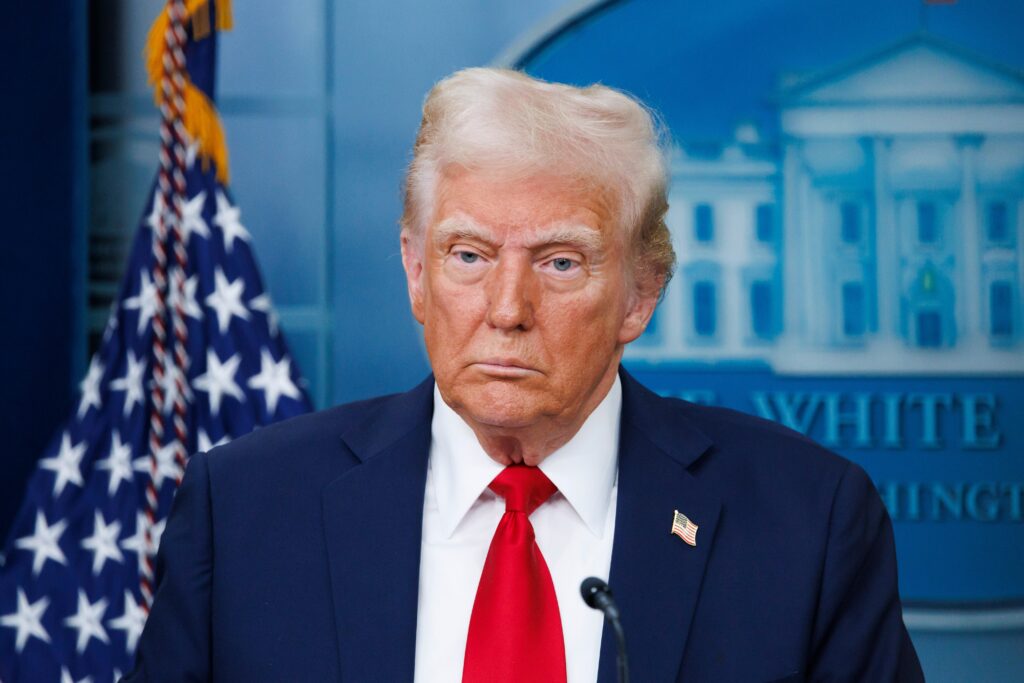While US stock markets calmed down this week after sharp swings caused by new trade tariffs, experts are now watching a quieter part of the financial system: the US bond market. This market rarely sees sudden moves, but this time, something unusual happened. Bond prices dropped, and interest rates on US government debt jumped fast.
This may not seem important to everyday people, but the bond market often gives early clues about deeper problems in the economy. Some experts say this shift could even push Donald Trump to rethink his tariff plans.
What Are Bonds and Why Do They Matter?
Governments borrow money to pay for services like roads, military, and healthcare. They do this by selling bonds. Bonds are like IOUs. Investors lend the government money, and in return, they get paid interest.
In the US, these are called “Treasuries.” The government agrees to pay back the full amount on a set date. Until then, the investor gets small interest payments.
Big banks, retirement funds, and even foreign governments buy these bonds. They are seen as very safe because the US has never failed to repay its debt.
A Rare Move: Bond Prices Fall, Yields Rise
Usually, when the stock market falls, investors run to bonds to keep their money safe. That happened briefly on April 2 after Trump announced the first round of tariffs on foreign goods. But just a few days later, as the tariffs kicked in and Trump promised more, investors got nervous.
They began selling US government bonds. When more people sell, the price drops. And when the price drops, the interest rate, or “yield,” goes up. That’s what happened here.
Yields on 10-year bonds jumped from 3.9% to 4.5%. For 30-year bonds, the rate nearly hit 5%. This kind of leap is very rare. Even a move of 0.2% is seen as a big deal in this market.
Why Investors Are Nervous
Tariffs are taxes on imported goods. They can raise prices, slow down trade, and hurt businesses. Investors fear that too many tariffs will harm the US economy. They now want higher interest in return for the risk.
According to analyst Jonas Goltermann from Capital Economics, this shows a “risk premium” is building. It means people see lending money to the US as more risky than before.
How This Affects You
When bond yields rise, it costs the government more to borrow. That can limit spending on public programs.
But the impact doesn’t stop there. It also raises interest rates for families and businesses. Credit card rates, mortgage rates, and car loans can all go up.
John Canavan of Oxford Economics says small businesses may get hit the hardest. They rely on loans and don’t usually have long-term fixed rates. Higher costs mean they might have to stop hiring or even shut down.
Banks might also lend less, fearing losses. That can make it harder for people to buy homes or start new businesses. Since many Americans use their homes to back business loans, this tight lending could slow the economy even more.
Trump Responds to Market Signals
At first, Trump told Americans to stay strong and support the tariffs. But as the bond market showed stress, he changed course.
He delayed the next round of tariffs for 90 days for most countries, except China. The broad 10% tariff on all goods still stands, but more increases are on hold.
Experts say this shows where pressure worked. Trump seemed to ignore falling stocks, but the bond market got his attention.
Paul Ashworth from Capital Economics says business leaders flooded Treasury Secretary Scott Bessent with concerns. This likely helped shift Trump’s stance.
Lessons from the UK and Warnings from China
Some compare this to what happened in the UK in 2022. Back then, the government announced large tax cuts without saying how it would pay for them. Investors got scared. Bond prices crashed, and interest rates soared. The UK central bank had to step in to calm things down.
In the US, the Federal Reserve hasn’t needed to act yet. But some believe they were watching closely in case things got worse.
China’s role also adds tension. China and Japan hold huge amounts of US government debt. Some feared China might sell off its bonds to fight back against the tariffs.
However, experts say this would hurt China more than it would hurt the US. Selling too many bonds would lower their value, and China would lose money.
A Still-Unfolding Story
For now, the bond market has settled a bit. But rates remain higher than they were before the tariff fight began.
While the average person might not notice these changes right away, the effects could grow over time. Higher rates mean less borrowing, slower growth, and more expensive debt.
This financial shift may not end the trade war, but it has made the risks clearer.


